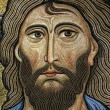The Contingency Argument for God
by Dr. Peter Kreeft
Filed under The Existence of God

Many consider the argument for God from contingency to be one of the strongest. The basic form is simple: If something exists, there must exist what it takes for that thing to exist. The universe—the collection of beings in space and time—exists. Therefore, there must exist what it takes for the universe to exist. What it takes for the universe to exist cannot exist within the universe or be bounded by space and time. Therefore, what it takes for the universe to exist must transcend both space... Read More
The Common Consent Argument for God
by Dr. Peter Kreeft
Filed under The Existence of God

This proof for God is in some ways like the argument from religious experience and in other ways like the argument from desire. It argues that: Belief in God—that Being to whom reverence and worship are properly due—is common to almost all people of every era. Either the vast majority of people have been wrong about this most profound element of their lives or they have not. It is most plausible to believe that they have not. Therefore it is most plausible to believe that God exists. Everyone... Read More
Jesus: Liar, Lunatic, Legend, Mystic, or Lord?
by Dr. Peter Kreeft
Filed under Historicity

For Catholics, the doctrine of Christ's divinity is central, for it is like a skeleton key that opens all the other doctrines. Catholics have not independently reasoned out and tested each of the teachings of Christ received via the Bible and the Church, but believe them all on his authority. For if Christ is divine, He can be trusted to be infallible in everything He said, even hard things like exalting suffering and poverty, forbidding divorce, giving his Church the authority to teach and forgive... Read More
Recovering Pascal’s Wager
by Dr. Peter Kreeft
Filed under The Existence of God

Most philosophers think Pascal's Wager is the weakest of all arguments for believing in the existence of God. Pascal thought it was the strongest. After finishing the argument in his Pensées, he wrote, "This is conclusive, and if men are capable of any truth, this is it." That is the only time Pascal ever wrote a sentence like that, for he was one of the most skeptical philosophers who ever wrote. Suppose someone terribly precious to you lay dying, and the doctor offered to try a new "miracle... Read More
Faith, Reason, and God: A Socratic Dialogue
by Dr. Peter Kreeft
Filed under Faith

NOTE: This fictitious dialogue takes place between two friends, Chris, a Catholic, and Sal, a sincere skeptic, and centers on some basic questions here at Strange Notions regarding faith, reason, and the existence of God. Sal: Chris, before we go any further in our conversations about Christianity, I have to ask you a very basic question. Chris: Ask away. Sal: Do you think this is going to get us anywhere, arguing about religion? Chris: What you mean by "arguing"? Sal: Fighting... Read More
The Case for Life After Death
by Dr. Peter Kreeft
Filed under Anthropology

Can you prove life after death? Whenever we argue about whether a thing can be proved, we should distinguish five different questions about that thing: Does it really exist or not? "To be or not to be, that is the question." If it does exist, do we know that it exists? A thing can obviously exist without our knowing it. If we know that it exists, can we be certain of this knowledge? Our knowledge might be true but uncertain; it might be "right opinion." If it is certain, is there a logical... Read More
Know Thyself: The Insolvable Puzzle
by Dr. Peter Kreeft
Filed under Anthropology

Though agape [i.e. selfless love] comes from God, it resides in our free will as human beings. Its home is not the body or the feelings, or even the intellect, but the will. True, the intellect has to work with it. But it is not the intellect that loves, any more than it is the light in the operating room that performs the surgery.Agape may be aided by seeing, accompanied by feeling, and accomplished by doing, but it is essentially an act of choosing, an act of free will. If God exists, and God... Read More
How Your Conscience Leads to God
by Dr. Peter Kreeft
Filed under The Existence of God

The argument from conscience is one of the only two arguments for the existence of God alluded to in Scripture, the other being the argument from design (both in Romans). Both arguments are essentially simple natural intuitions. Only when complex, artificial objections are made do these arguments begin to take on a complex appearance. The simple, intuitive point of the argument from conscience is that everyone in the world knows, deep down, that he is absolutely obligated to be and do good, and... Read More
Unpacking the First Cause Argument for God
by Dr. Peter Kreeft
Filed under The Existence of God

The most famous of all arguments for the existence of God are the "five ways" of Saint Thomas Aquinas. One of the five ways, the fifth, is the argument from design, which we looked at in the last essay. The other four are versions of the first-cause argument, which we explore here. The argument is basically very simple, natural, intuitive, and commonsensical. We have to become complex and clever in order to doubt or dispute it. It is based on an instinct of mind that we all share: the instinct that... Read More
The Uniqueness of Christianity: Twelve Objections Answered
by Dr. Peter Kreeft
Filed under Religion

Ronald Knox once quipped that “the study of comparative religions is the best way to become comparatively religious.” The reason, as G. K. Chesterton says, is that, according to most “scholars” of comparative religion, “Christianity and Buddhism are very much alike, especially Buddhism.” But any Christian who does apologetics must think about comparative religions because the most popular of all objections against the claims of Christianity today comes from this field. The objection... Read More







